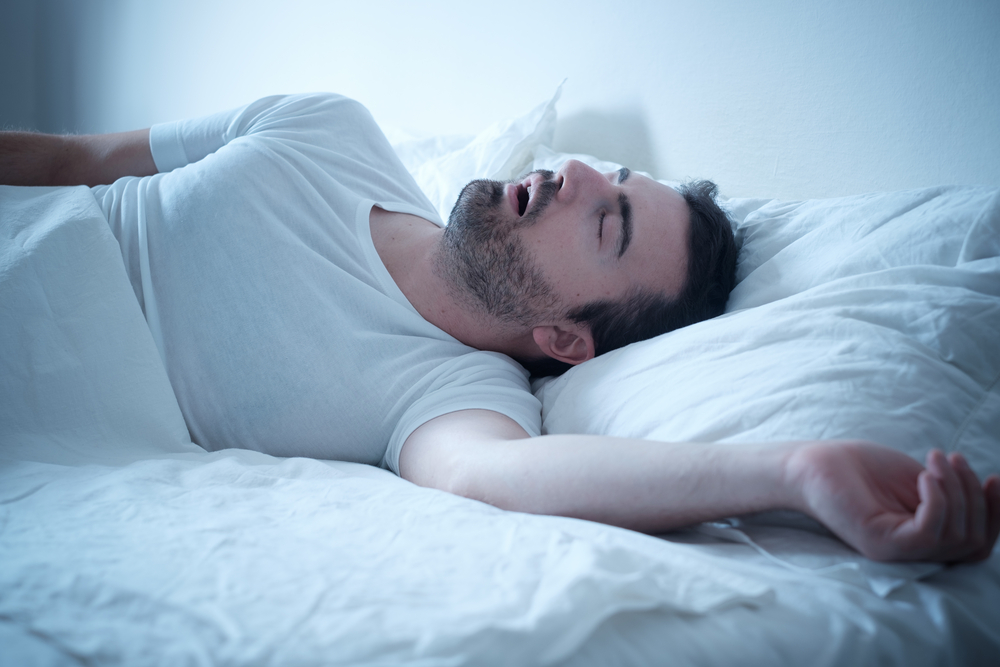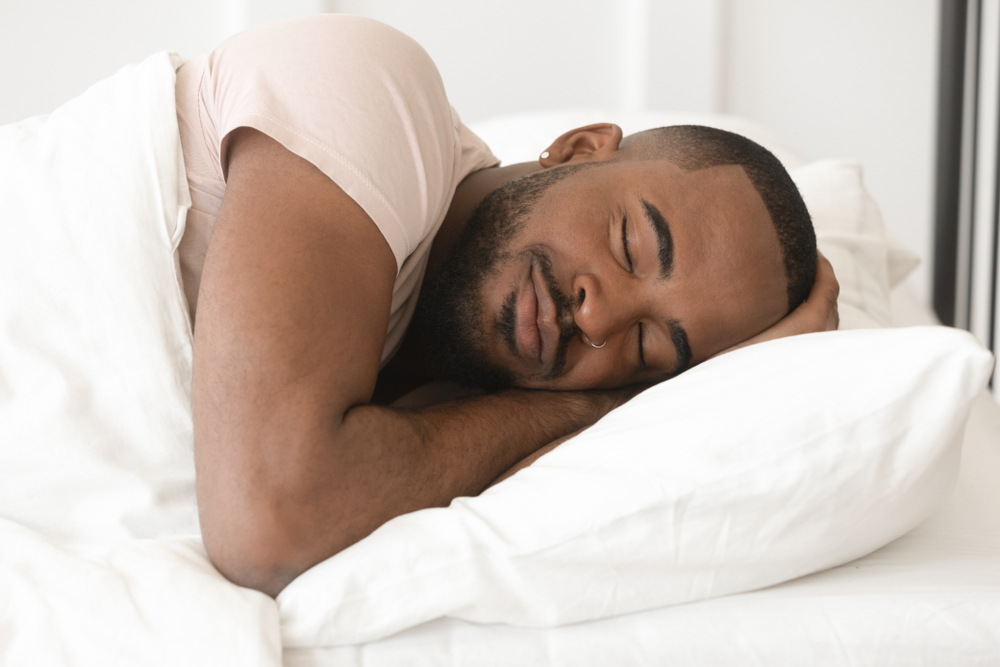Sleep Apnea & Snoring in Silver Spring, MD
The Effects of Drinking on Your Sleep: Our Silver Spring Sleep Specialist Explains
Sleep apnea, a prevalent sleep disorder affecting millions worldwide, disrupts breathing during sleep and poses significant health risks. But have you ever considered how that nightly glass of wine or occasional drink might affect your sleep apnea and well-being? In this article, Dr. Alice Bassford, our Silver Spring, MD, sleep dentist, explains how alcohol can exacerbate the symptoms and make it harder for you to get the quality rest you need. Call our office today at 301-593-5500 to schedule an appointment with us. We’re here for patients in Silver Spring, Kensington, Wheaton-Glenmont, Washington DC, and beyond.
Tailored Sleep Apnea Solutions in Silver Spring, MD
Living with sleep apnea can take a serious toll on your energy, focus, and overall well-being—but help is close to home. Dr. Bassford, an experienced sleep dentist in Silver Spring, offers personalized, non-invasive treatment options designed to improve your sleep and your health. Using custom-fitted oral appliances that keep the airway open during the night, she helps patients breathe easier and sleep more deeply without the need for CPAP machines. At Silver Spring Sleep Solutions, we take a patient-centered approach, creating care plans that align with your needs and lifestyle. With our support, restful nights and revitalized mornings are within reach.
How Alcohol Affects Sleep Apnea
Relaxation of Throat Muscles
Drinking alcohol causes relaxation of the throat muscles, including the muscles that support the airway. As a result, the airway becomes more prone to collapse during sleep, exacerbating sleep apnea symptoms.
Suppression of Respiratory Drive
Alcohol is a central nervous system depressant, which means it can suppress the brain’s respiratory drive. This reduction in respiratory drive can lead to shallower breathing and contribute to sleep apnea episodes.
Disrupted Sleep Architecture
Alcohol disrupts the normal sleep architecture, leading to fragmented sleep and reduced overall sleep efficiency. Individuals with sleep apnea already struggle with sleep disruptions, and alcohol consumption can further worsen this problem.
Increased Risk of Obesity
Frequent alcohol consumption can lead to weight gain, and obesity is a known risk factor for sleep apnea. Therefore, excessive alcohol intake may contribute to sleep apnea in susceptible individuals.
Dehydration
Alcohol is a diuretic, which means it can lead to increased urination and dehydration. Dehydration can thicken mucus in the airways, potentially making breathing more difficult, particularly for those with sleep apnea.
Sleep Onset Delay
While alcohol may initially make you drowsy, it can delay the onset of REM (rapid eye movement) stage sleep. REM sleep is vital for overall sleep quality, and its disruption can impact sleep apnea symptoms.
Interaction with Sleep Medications
Some individuals with sleep apnea use continuous positive airway pressure (CPAP) machines or sleep medications. Alcohol can make CPAP less effective by further loosening throat muscles, making it harder for the air pressure to keep airways open. It can also interact with sleep medications, potentially reducing their efficacy. A sleep specialist
Influence on Sleep Position
Alcohol consumption can affect one’s ability to maintain a healthy sleep position. Sleeping on the back can worsen sleep apnea symptoms, and alcohol-induced relaxation may make it harder to stay in a preferred position.
Sleep Fragmentation
For individuals with sleep apnea, alcohol can lead to increased sleep fragmentation. Frequent awakenings throughout the night can result in fatigue and feeling less refreshed in the morning.
Exacerbation of Snoring
Snoring is a common symptom of sleep apnea, and alcohol can exacerbate snoring due to the relaxation of throat muscles and increased airway resistance.


Tips for Managing Sleep Apnea and Alcohol Consumption
Managing sleep apnea while consuming alcohol requires careful consideration and responsible choices. Here are some expert tips to help you strike a balance:
Limit Alcohol Intake
Moderation is key. If you have sleep apnea, it’s best to limit alcohol intake, especially close to bedtime. Avoid binge drinking and try to have alcohol-free days to give your body sufficient rest.
Avoid Alcohol Before Sleep
Refrain from drinking alcohol at least a few hours before bedtime. This time will allow your body time to metabolize the alcohol and reduce its potential effects on sleep.
Stay Hydrated
Since alcohol can cause dehydration, ensure you stay well-hydrated throughout the day. Drinking enough water can help keep airways moist and reduce the risk of snoring.
Elevate Your Head
If you choose to have a drink, consider using an extra pillow to elevate your head slightly while sleeping. This may help improve airflow and reduce sleep apnea symptoms.
Communicate with Your Doctor
Inform your healthcare provider about your sleep apnea and alcohol consumption habits. They can provide personalized advice and monitor your condition more effectively.
Optimize Your Sleep Environment
Create a conducive sleep environment by keeping the room cool, dark, and quiet. Minimizing potential sleep disruptions can improve your overall sleep quality.
Frequently Asked Questions
Can alcohol make sleep apnea irreversible?
While alcohol doesn’t cause sleep apnea, it can exacerbate the condition. With appropriate management, including reducing alcohol intake, you can control the symptoms and minimize the effects of alcohol on sleep apnea.
Is red wine better for sleep apnea than other alcoholic beverages?
While some studies suggest that red wine may have certain health benefits, there’s no evidence to suggest it is better for sleep apnea than other types of alcohol. The impact largely depends on the amount consumed.
Can I still use my CPAP machine if I've had alcohol?
Using a CPAP machine is still beneficial if you’ve consumed alcohol. However, you may need to increase the air pressure, as alcohol makes airways more likely to collapse. You should also be cautious about interactions between alcohol and your prescribed sleep medications.
How long before bedtime should I avoid alcohol?
Sleep dentists recommend avoiding alcohol for at least three to four hours before bedtime to minimize its effects on sleep. However, this timeframe can vary depending on the amount consumed and the alcohol content of the drinks.
Better Rest Starts at Silver Spring Sleep Solutions
Understanding how alcohol affects sleep apnea is essential for effectively managing the condition. While occasional social drinking may be acceptable for some individuals with mild sleep apnea, excessive or frequent alcohol consumption can worsen symptoms and sleep quality. Moderation, hydration, and open communication with Dr. Bassford at Silver Spring Sleep Solutions are key to maintaining a healthy balance between enjoying a drink and managing sleep apnea.
If you suspect you have sleep apnea or experience persistent sleep issues, contact our Silver Spring sleep dentist’s office at 301-593-5500 or use our online contact form. We’re dedicated to helping patients from Silver Spring and the surrounding areas of White Oak, Kensington, and Glenview, MD.
